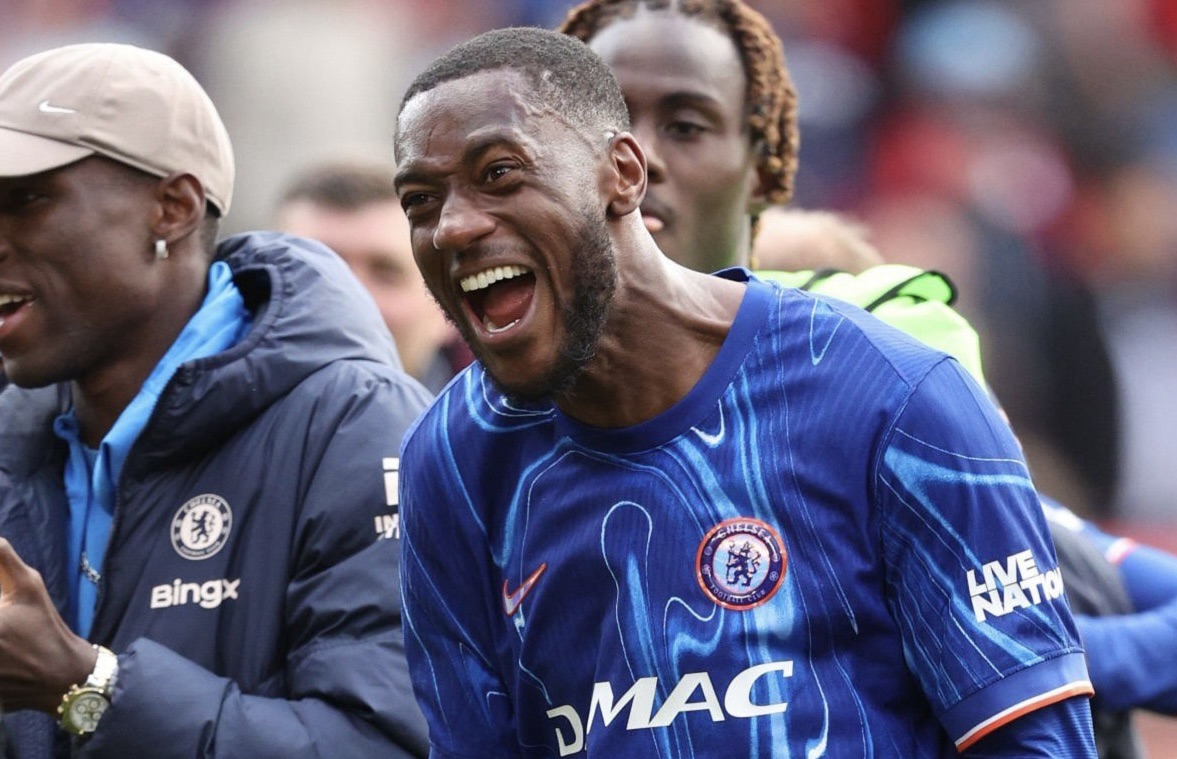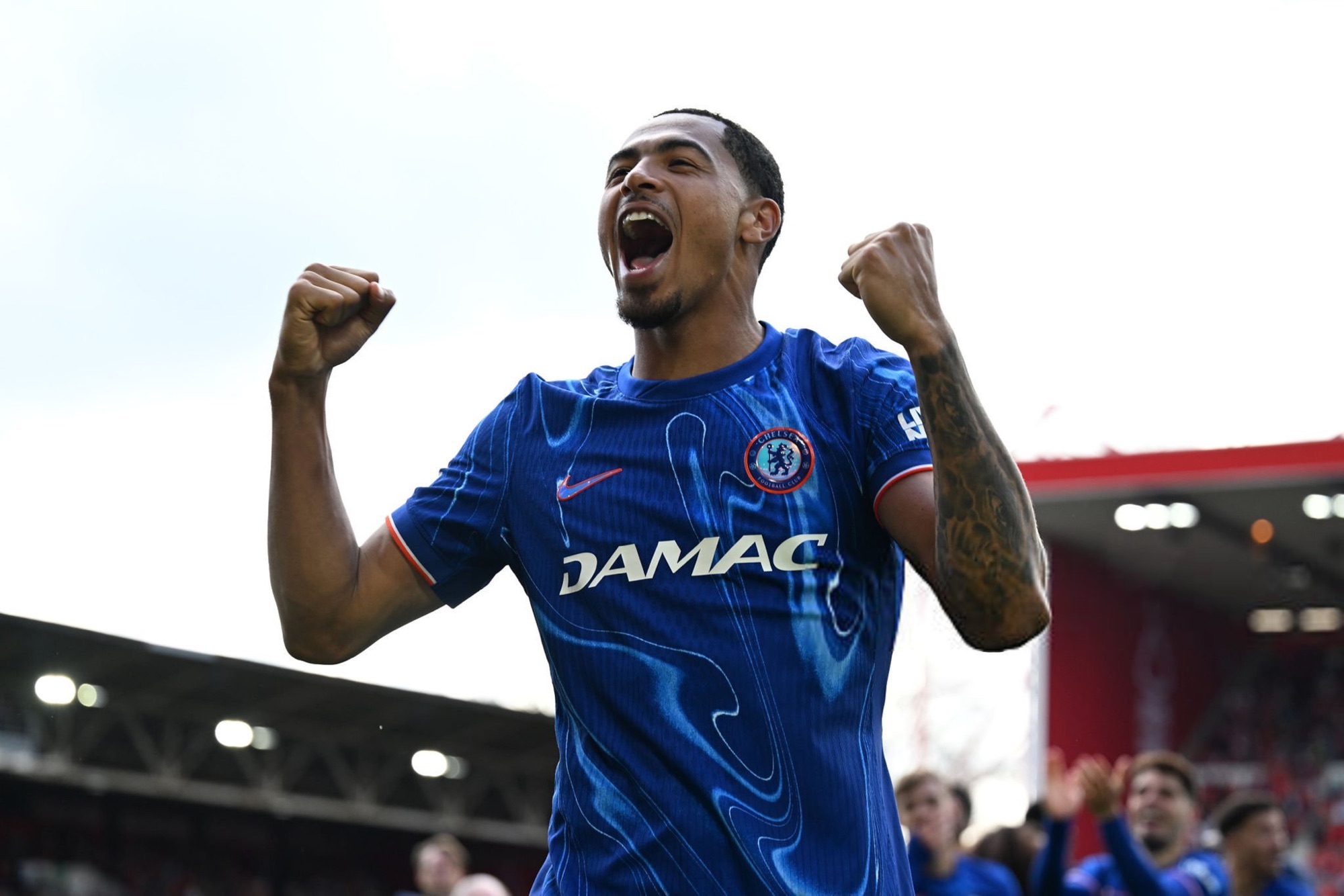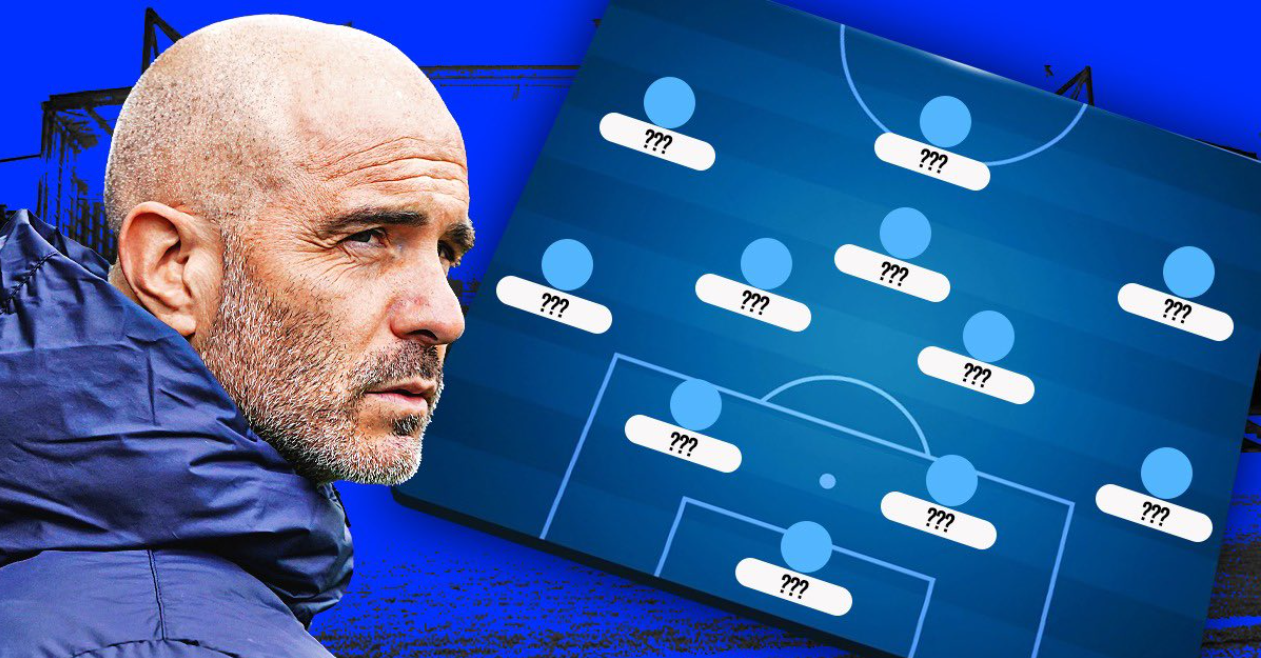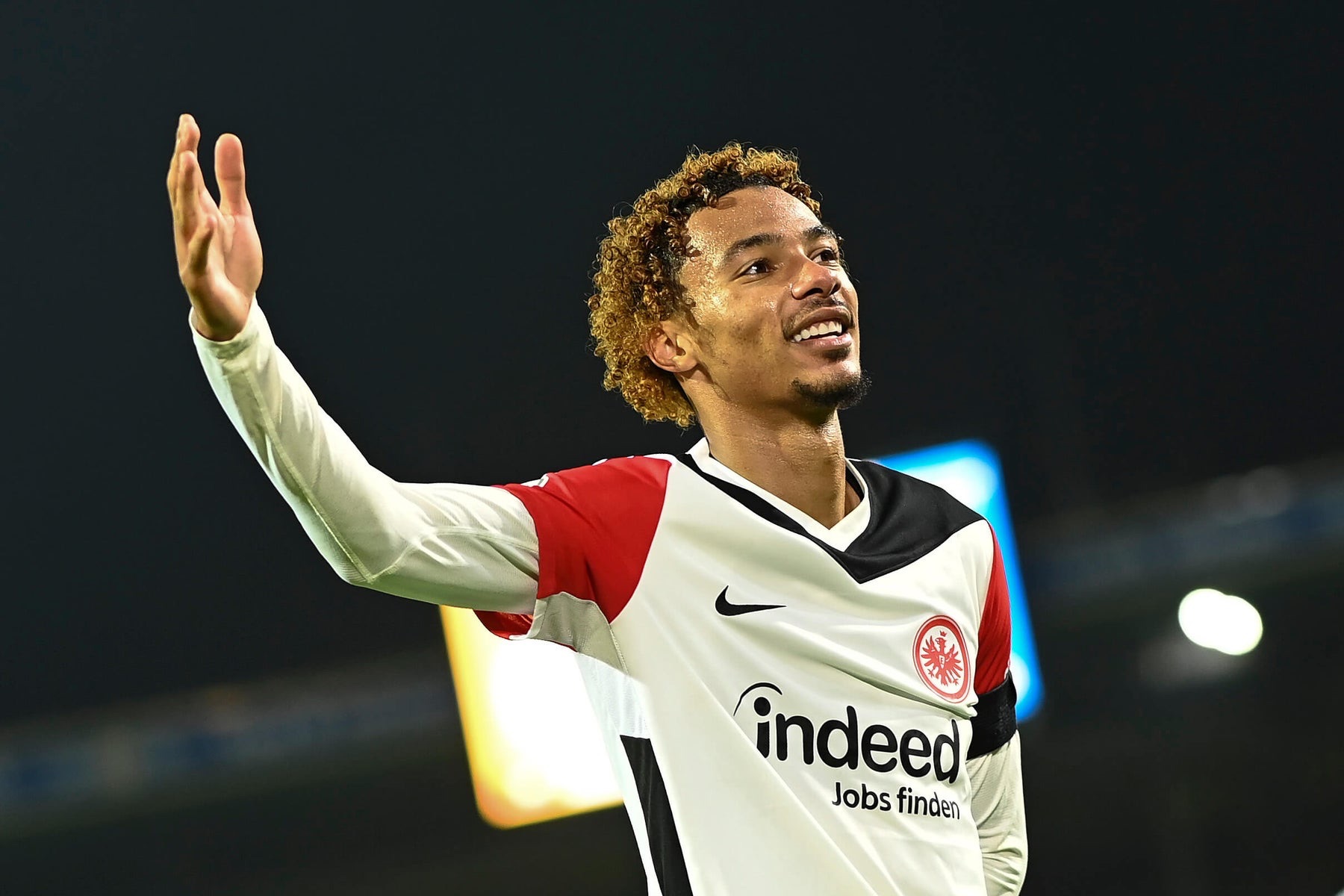As Chelsea Football Club enters 2024, it’s a good time to reflect on the owners, the project and consider where this crazy train is going.
2023 was a bad year for Chelsea by all accounts on the pitch; from Graham Potter’s disastrous tenure, to Frank Lampard’s uninspiring return and everything in between, there have been few highlights for Chelsea this season.
Given Chelsea are now over two years into the Clearlake’s tenure, it’s time to ask the question on everyone’s mind? Is this working?
For some, it is. Chelsea have bought lots of incredible young talent and have spent a lot of money to do so, the multi-club model is underway with the purchase of Strasbourg and results on the pitch are steadily improving, despite many false dawns.
Clearlake and co had a lot to do when they took over and finally can plan for the future, rather than catching up to the present.
But for others, it really isn’t working. Football is a results-based business and nowhere more so than at Stamford Bridge.
Chelsea’s form for almost the entirety of Clearlake’s tenure has been subpar to put it lightly (and migraine-inducingly awful more heavily).
Chelsea have crashed out of cup competitions and have languished in mid table.
Injuries continue to plague Chelsea more than any other club in Europe over the past several seasons, leaving large swathes of Chelsea’s expensive squad out for months at a time.
Home-grown academy players have been flipped to balance the books, while overpaid and underperforming stars produce lacklustre performances against more experienced, but less talented opposition.
Some laud Chelsea’s recruitment while others see it as scattergun and overhyped.
Paul Winstanley and Laurence Stewart, as well as Mauricio Pochettino are having questions rightfully asked of them for different reasons.
That’s not even mentioning the incoming ticket price increase, the ongoing stadium saga and the question of club culture, which appears to pop up daily at this point.
So, given the difficulties that Chelsea have faced as a club from top to bottom in 2023, is it time to adjust the strategy? Is it time to pull the lever on this crazy train’s tracks and change direction?
There is some speculation that this is already happening, with the expected renewed focus on experience to bolster the squad this month, as well as the recent news that Chelsea are two windows into a four-window strategy, perhaps the owners have already begun to change tact for the future.
There are many reasons for wanting Chelsea to change their strategy.
The last several windows of buying exclusively young players and the infamous Leonardo DiCaprio policy has left a disjointed squad with few real leaders.
As a result, Chelsea haven’t been able to build any sustainable success in domestic or European competition.
The current strategy around buying players is also an issue of quantity as well as quality.
The sheer number of players Chelsea have turned over in the past two seasons will make your head spin and whilst a clear out was desperately needed, that lack of stability at Chelsea since 2022 has ultimately set the club back on the pitch where it matters the most.
As previously mentioned, ticket prices will increase for the 24/25 season, the away coach subsidy ended this season and Chelsea are still mid-table.
There has been a lot of money spent on a lot of players who haven’t hit the ground running.
Ultimately, the costs of the new ownership’s high-risk high-reward strategy of buying young superstars is already being pushed onto the supporters, we will see if this trend continues.
So, there are certainly reasons Chelsea’s owners would want to change strategy and as mentioned, they may already be beginning to pivot.
However, there are several points to raise and key pitfalls to avoid if Chelsea are going to switch up the strategy moving forward with a more experienced angle of scouting in January.
Changing everything again will not necessarily improve things immediately.
The first argument against a change in strategy is that despite Chelsea’s current position in the Premier League, they have improved substantially this season from last season.
Chelsea’s points total is somewhat misleading, often dominating games but struggling in front of goal, costing key points against teams they should be beating.
The performances from last season to this season have improved, especially in the big games. Potter to Pochettino while not perfect by any means, is a vast upgrade.
By no means are Chelsea “back” to what they once were, though.
They are still severely underperforming where they feel they need to be as a big club, but there is a feeling that things may be starting to click more as the players get to grips with Pochettino’s coaching while becoming more familiar with each other.
Chelsea are not many points away from a European spot this season and a stronger second half of the season continuing the upward trend may well be enough to secure one.
Everyone is waiting for this Chelsea project to go “bang”, would staying the course ensure that? One could argue that looks increasingly likely the longer we go on as we are.
That is to say, if Chelsea change strategy now, will it simply set the club back further while a new plan and structure is put in place when we could be on the precipice of something truly special?
Chelsea have trodden water for too long and can’t afford another season of mediocre results in 24/25, making a total change in strategy a big gamble for Clearlake and co.
There is similar sentiment over sacking Pochettino at this point despite the poor results, it would ultimately set the club back to do so in the middle of the season barring emergency relegation fears.
A change in strategy also paints a picture of the owners as “the cowboys who don’t know what they’re doing” that everyone said they were when they first arrived in the Premier League.
It would justify concerns that the decision makers at Stamford Bridge have been getting it wrong, and perhaps question their ego’s.
No wholesale changes in results on the pitch after two years surely wasn’t all part of the grand plan that was envisioned.
It would also hamper a young squad at a key stage in its development if those who need playing time don’t get it when experienced players enter the fray.
This also hurts the owner’s investments too, in their plans to “flip” players for profit. Players need to be in the shop window for their value to increase.
However, staying the course as things stand doesn’t feel like a very proactive strategy and continuing as Chelsea are, buying young players and expecting them to perform like seasoned veterans isn’t sustainable.
We know that at this point, we’ve seen it for a season and a half on a consistent basis under three different managers.
It also would ignore Pochettino’s wishes, lending credence to the idea that he is only here for the short term despite the owner’s statements on him as a long-term coach which would cause more instability (although at this point, any manager who lasts a season at Chelsea could be considered “long-term”).
If the disparity between the coach’s wishes and the boards actions continue, it could undermine good work being done behind the scenes.
In fact, there are reasons that a change in strategy would in fact be the very thing to galvanise Chelsea into a period of sustained success.
Rather than blocking the development of the younger players, having experienced heads around may well push our many wonderkids to step up their performances further due to there being strong competition in the squad.
Adding experience in at the right moment could also bring a fresh perspective, more quality in training, professional standards, a winning culture (if the right names are brought in) and take some of the pressure off Pochettino and Thiago Silva who are on twenty-four-seven babysitting duty.
Experienced players coming in would also be proof of backing the manager in the transfer market and devour those questions previously mentioned.
Pochettino wanting more experience is no secret and backing him in this way, giving him a select few experienced heads that he can rely on will help him, the squad and the relationship between Poch and the board.
However, this is also a double-edged sword for Pochettino. Having already had a lot of money spent on a squad that a lot would consider good enough for European football, if results continue in their current form, there will be nowhere for him to hide.
This is beneficial for Chelsea overall, as this tells the board and fans whether Pochettino is the one to take the club forward, despite being an indictment of a coach where one of their main apparent attributes is their development of young players.
More experienced players would almost certainly improve form on the pitch.
This current Chelsea side is very reactive in games when things are going against them, (see Luton away as a good example of this) so calmer and older heads can push through tough moments that many of our squad have never had to face before.
Add on other intangibles such as professionalism, leadership and work ethic and you’ll see that the whole standard of the squad raises up a level.
Experience also adds tactical and positional flexibility, as well as more stability in performances unlike the current crop of youngsters who (as much as we love them) blow hot and cold constantly.
Adding in just two players of Azpilicueta’s adaptability, professionalism and reliability would improve form week-on-week and prove invaluable in the long run.
Finally, older players (not necessarily more experienced but that is a general trend, read Carpenter’s Column #1 to read more about it) are less bothered by social media noise.
In an age where more young players than ever read what is written about them online, older players who don’t have as much of a presence online can keep a strong mentality even through poor patches.
Ultimately however, this is a game of balance.
There is an equilibrium needed to add the right level of experience – experience of a winning culture, a motivated experience that can drive the squad forward, bringing the younger players with them rather than buying experience for its’s own sake.
Anyone Chelsea bring in during the January window will need to be able to make an impact straight away, affecting the culture and form of the team towards success.
For this reason, the next two transfer windows may prove to be the most important of Clearlake Capital’s tenure at Chelsea.
However, there is a balance to strike there also, you see how hard it is now?
Backing the manager is important and necessary for any team to have success on the pitch, but this can’t compromise the data driven recruitment that has given Chelsea gems like Cole Palmer, Malo Gusto and Benoit Badiashile.
Chelsea are very good at buying youngsters, they will need the same wherewithal when looking at more experienced options.
It is just as important not to fill the squad with only the manager’s targets as the last time Chelsea did this (Antonio Conte’s tenure).
It took until the summer of 2023 to finally rid itself of the deadwood system players that nobody after wanted.
This is especially important if Pochettino isn’t going to be the long-term coach.
Hopefully the owners have learned their lesson in this regard after giving Thomas Tuchel carte-blanche in the 2022 summer window.
Chelsea do not need another Pierre Emerick Aubameyang situation.
There is a balance to strike with the development of our players. Signing too many will push promising players to the fringes and lower their value while blocking the path to get vital minutes for their development.
Signing too few will make the impact negligible and needlessly bloat the squad, it is on the owners and sporting directors to walk that fine line in bringing in just enough quality experience while not changing things wholesale.
Above all however, there is a balance to strike in how much the strategy would need to change to achieve the desired result (winning games consistently and challenging for trophies).
Chelsea need to ensure they don’t do too much of anything.
There has been so much instability with the constant churn of players leaving that it has affected the players who stayed.
The Chelsea ownership need to be doing everything in their power to design a stable environment for the club to continue to grow and the constant chopping and changing of staff, players and coaches from top to bottom must end to make that happen.
We have seen the best version of Chelsea since Clearlake arrived when our talented squad was given time, patience and an unchanging environment around them to focus on the football.
Ultimately, the ownership cannot do nothing, but the less they do, the better.
We have already used the automatic shotgun in our recruitment, it’s now time for a pistol.
One shot at a time, efficient, deliberate and clinical.
Happy New Year Chelsea fans! Here’s to a better 2024 – Oli





